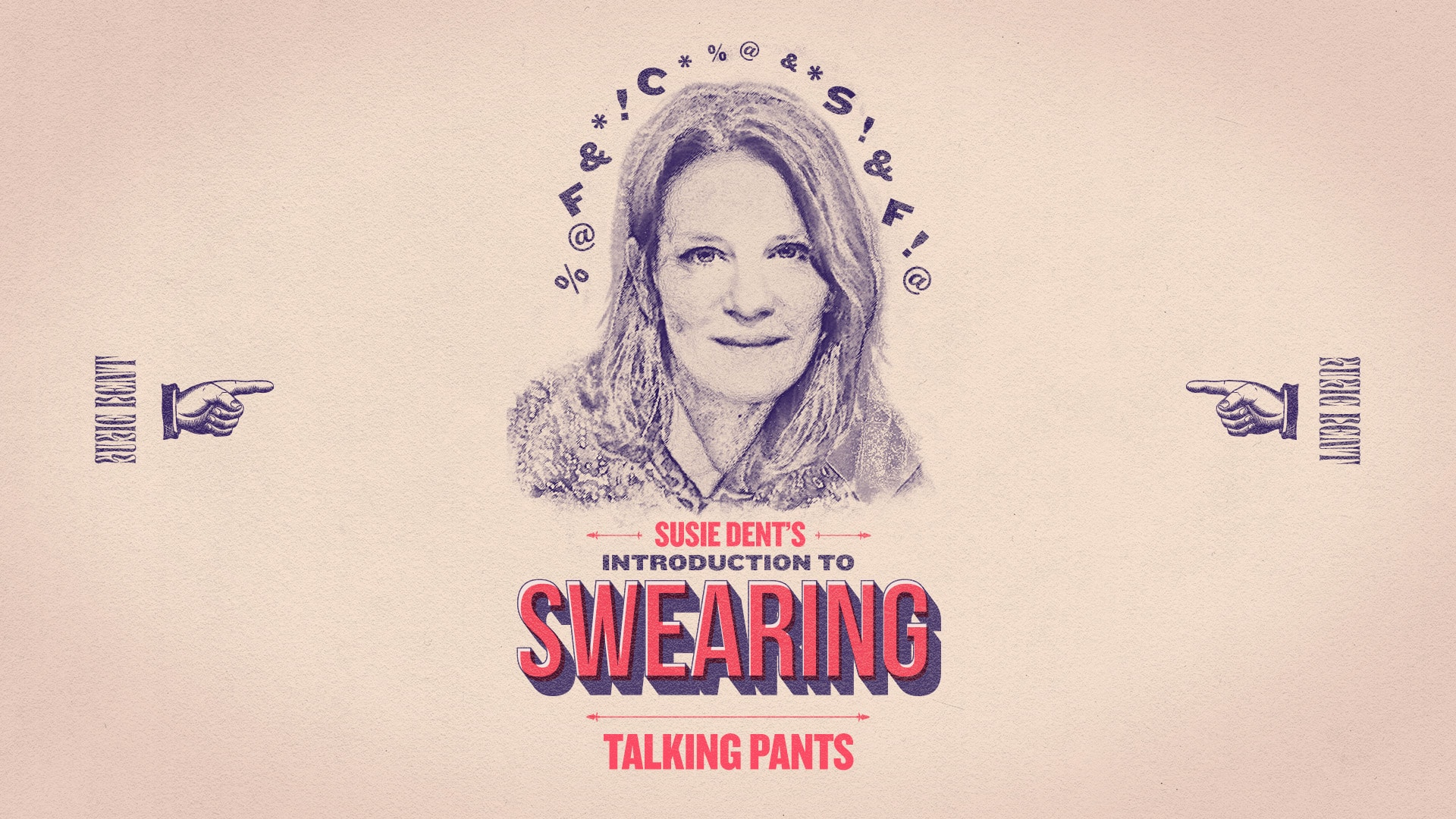
Susie Dent’s look at the fruitier words in the English language continues to get to the bottom of things…

The word ‘pants’ is hardly an obvious candidate for a series on swearing. Pants are simply trousers or knickers, after all, and even when used as a byword for ‘rubbish’ – ‘that’s so pants!’ – it’s pretty tame. Dig a little deeper in the underwear drawer, however, and you’ll find a world of terms that allow us to add a chiffony glow to a subject that has attracted a fair amount of squeamishness over the centuries. And others that, on the other hand, prove we sometimes like to jump right in.
The story of pants themselves really belongs to the Italian stage, where in the commedia dell’arte of the 16th century, such characters as the Zanni (buffoons, who were the forerunners of our word ‘zany’), the Vecchi (elderly men) and the Inamorati (lovers) played out their stock roles.

De Agostini / A. De Gregorio / Getty Images
Most notable amongst the Vecchi was Pantalone, an egotistical, lecherous, and sinister old man. His lasciviousness was clearly symbolised by a large cod-piece, displayed over trousers that, as opposed to traditional knee-breeches, were particularly close-fitting and which covered the feet.
Such was their impact that ‘pantaloons’ slipped into 17th-century English to describe a succession of styles and, eventually, any trousers at all. As for the British version, the extension of ‘pantaloons’ or ‘pants’ to underwear was well underway by the 18th century, even if some dictionaries described the usage as ‘colloquial and shoppy’.

Pantalone, a notable figure among the Vecchi characters of the 16th century commedia dell’arte.
‘Pants’, of course, have a wordrobe of their own – from Bridget-Jones style ‘apple-catchers’ to ‘panties’, which evokes an altogether different linguistic frisson. Figuratively speaking, you might bore or scare the pants off someone, bust their pants, fancy the pants off them, or even get into their pants. If you keep your feet in your pants you manage to stay calm, the opposite of weeing your pants, whereupon you might be told to ‘keep your knickers on!’.
Want more foul-mouthed indecency? You can find all of Susie Dent’s Introduction to Swearing here!
That word ‘knickers’ also began as something very different, namely the knickerbocker suit named after its resemblance to the breeches worn by Dutchmen in Washington Irving’s 19th-century illustrated History of New York. Irving wrote under the pseudonym Dietrich Knickerbocker, in which ‘knicker’ was apparently Dutch slang for toy marbles.

Washington Irving, who wrote under the pseudonym Dietrich Knickerbocker, and whose 19th-century illustrated History of New York featured numerous breeches.
There are however no marbles, toy or otherwise, lurking in today’s knickers, for the word now sits firmly in the female lingerie department, along with such delights as trollywags and scanties.
So far, so innocent, you might think. But for a long while even the word ‘trousers’ was considered taboo. In fact, delve into a historical thesaurus and you will find a mini-lexicon of euphemisms for the item, including ‘unmentionables’, ‘unwhisperables’, ‘inexpressibles’, ‘sit-upons’, and ‘round-me-houses’. The Farmers’ Mag of 1809 decided that ‘A fine lady can talk about her lover’s inexpressibles, when she would faint to hear of his breeches’.

Perhaps it was what the trousers ‘housed’ that was the real taboo. Today, on the other hand, today’s ‘budgie-smugglers’ or ‘whitie-tighties’ leave nothing to the imagination (though you might want to forget you ever heard the words ‘underfugs’ and ‘underdungers’). Should you catch a glimpse of a woman’s knickers, once dubbed ‘squirrel-covers’, you could be said to have ‘shot the squirrel’. If you catch sight of the squirrel-covers’ crotch, you have curiously ‘chucked a bridge’.
Which proves that we have little need for the unwhisperables and unutterables these days. As for the British and American confusion over pants, even publishers get it wrong sometimes. When one US text was ‘translated’ into British English, its editor clearly opted for search and replace as the easiest route. The result: a description of a Korean revolutionary movement and its many ‘particitrousers’.





1 Comment
Thanks Susie, fascinating as ever. It seems that children in particular see ‘pants’ as a rude word. I will always remember Russell Harty talking to a young boy (maybe aged six or thereabouts) preparing for, I think, a nativity play. The child had cause to say ‘pants’ and whispered it to Russell through, presumably, slight embarrassment. Russell didn’t quite catch it, so asked the boy to repeat, which he did in a comically impatient stage whisper. Russell collapsed, saying “I don’t think I can go on”. TV magic, and all about pants.